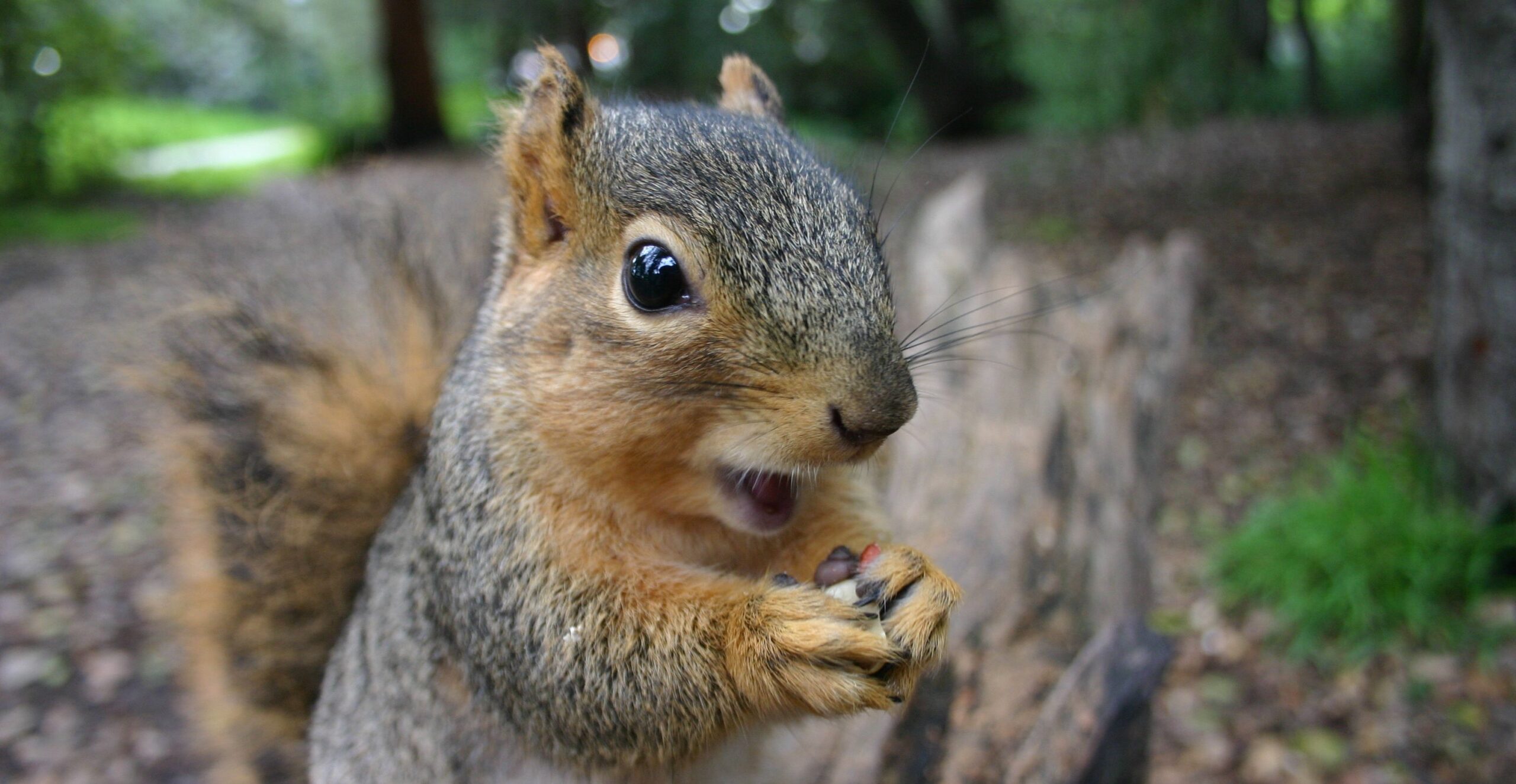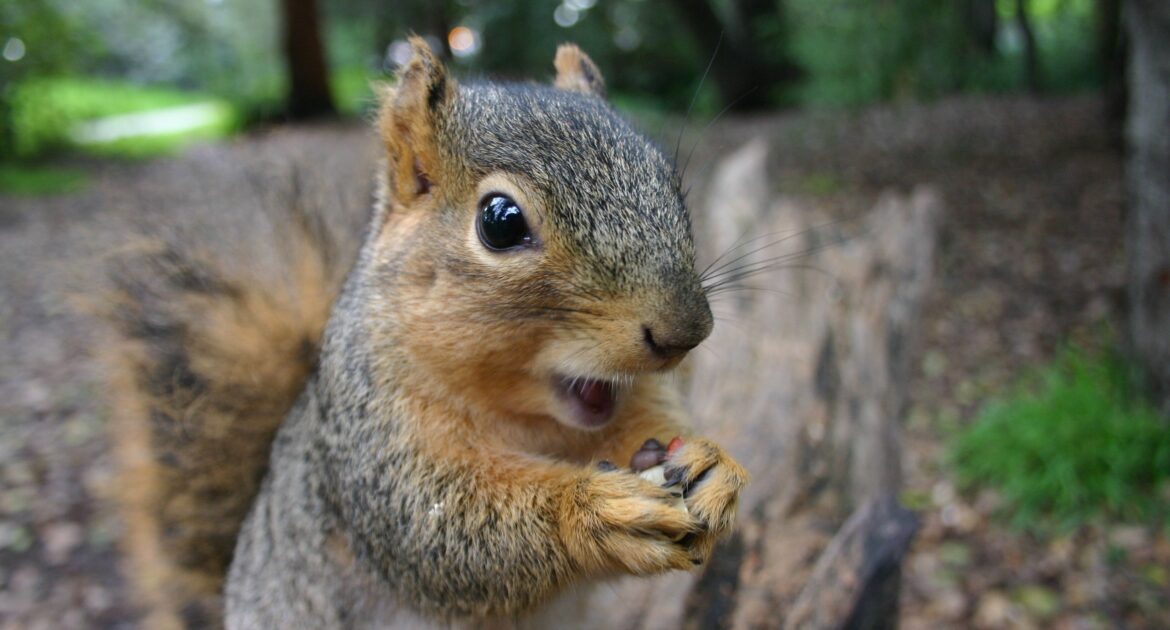If you’re a gardening enthusiast in Niagara, few things are more frustrating than waking up to find your carefully planted bulbs dug up and destroyed by squirrels. These curious and hungry animals can wreak havoc on your garden, turning months of preparation into a disappointing scene of scattered soil and chewed-up bulbs. While it’s tempting to try various DIY methods to keep them away, these tactics are often ineffective and can leave you with an even bigger problem.
The good news? There are practical steps you can take to make your garden less appealing to squirrels. And when it comes to keeping squirrels away from bulbs and protecting your property, Skedaddle is here with safe and humane wildlife removal solutions.
Why Squirrels Love Your Bulbs
Squirrels have a diverse diet that lets them adapt easily to many environments. They’re particularly fond of nuts, seeds, fruits, and yes, certain types of bulbs. Delicious varieties like tulips (especially Passionale tulips) are essentially an open invitation to these resourceful animals.
While these bulbs might be a treat for squirrels, they’re not fans of every type. Some plants, such as Narcissus and Hyacinth, act like natural deterrents. Understanding their preferences is the first step toward protecting your garden.
Practical Gardening Tips to Deter Squirrels
You don’t have to give up bulb planting entirely just because of pesky squirrels. Here are some practical gardening strategies to reduce the risk of damage:
- Mix Bulb Varieties
- When planting your garden, mix bulbs that squirrels love with ones they hate. For example:
- Bulbs squirrels love: Tulips, crocus, or Passionale tulips.
- Bulbs that squirrels dislike: Narcissus and Hyacinth.
- This mix makes it harder for squirrels to locate the bulbs they want, and they’re likely to leave the entire area alone. Narcissus flowers are not only beautiful but also toxic to animals, acting as a natural repellent.
- Plant Bulbs in Layers
- Squirrels are opportunistic and prefer easy meals. If you make it harder for them to access your bulbs, they’re likely to lose interest. Try planting in layers:
- Start by planting your favorite bulbs deeply, then cover them with a layer of soil.
- On top of that, add a layer of repellant bulbs, like Hyacinths or Daffodils.
- The deeper your bulbs are planted, the harder they are for squirrels to reach. Just make sure the soil drains properly to prevent rotting.
- Make the Area Look “Disturbed”
- Squirrels love freshly dug soil—but they’re less interested in areas that appear already disturbed. After planting, cover the ground with:
- Compost
- Mulch
- Fallen leaves
- These materials not only make your garden less attractive to squirrels but can also improve the health of your plants. The added layer tricks the squirrels into thinking the bulbs are gone or that another animal or predator has passed through.
- Remove Temptations Nearby
- Squirrels are often attracted to other food sources in your yard. If your home becomes their regular dining spot, they’ll soon venture into your garden. Try these tips to reduce their interest:
- Remove bird feeders or place them far from your garden.
- Regularly clean debris like fallen nuts and seeds from trees.
- Prune overhanging branches that lead to your garden area.
By disrupting squirrels’ access to food near your garden, you’ll make it less likely they’ll view your property as a prime spot for their next meal.
Why DIY Methods Aren’t Enough
No matter how well you follow these tips, squirrels are persistent. Once they’re curious, they won’t stop until they find a way to get what they want. DIY methods like repellents, barriers, or scare devices frequently fail because squirrels quickly adapt or find ways around them.
Even worse, poor attempts at dealing with squirrels can escalate the problem. For example, frustrated homeowners may discover that squirrels aren’t just targeting their bulbs but trying to move into attics or walls. This can lead to costly repairs and more significant issues if left unchecked.
At Skedaddle, we hear from many homeowners who’ve spent weeks (or even months) battling squirrels on their own, only to realize they needed professional solutions like ours from the start.
Why Choose Skedaddle for Squirrel Problems
Squirrels aren’t only garden invaders; they can also find their way into your home or attic, causing damage to insulation, wiring, and even structural components. If you suspect squirrels are nesting near or inside your home, it’s time to call a professional.
Humane Removal with One-Way Doors
At Skedaddle, we pride ourselves on using humane techniques tailored to remove squirrels safely and effectively. One of our most important tools is the one-way door system. Here’s how it works:
- Our technicians install specially designed one-way doors at access points to your home.
- These doors allow squirrels to leave but prevent them from re-entering.
- Once we’re confident all squirrels have left, we seal off entry points to make sure they can’t return.
This innovative approach ensures that squirrels are removed without harm while protecting your home long-term. Our humane methods stand out from outdated and inhumane techniques, giving you both peace of mind and a squirrel-free property.
Preventing Squirrels from Returning
Once Skedaddle is done removing squirrels from your home or helps you reclaim your garden, it’s essential to take preventive measures to keep them from coming back. Here’s what we recommend:
- Seal entry points: Check for holes and cracks in your home’s walls, roof, and foundation. Close them off to deny squirrels access to your attic or walls.
- Maintain your yard: Prune overhanging branches and trim back any trees or shrubs that make it easy for squirrels to access your roof or garden.
- Remove food sources: Whether it’s a bird feeder or fallen seeds from your trees, eliminating these tempting snacks will discourage squirrels from hanging around.
- Install deterrents: Use commercial or natural repellents to further discourage squirrels. Combine these with proper garden maintenance techniques for maximum results.
- Call a professional: When in doubt, trust experts like Skedaddle for a customized plan to keep squirrels away—for good.
A Humane and Effective Solution For Squirrel Removal In Niagara
Gardening should be a source of relaxation and joy, not frustration. While squirrels can be stubborn and resourceful animals, it’s entirely possible to keep them at bay with careful planning and the right support. By combining smart gardening techniques with the professional expertise of Skedaddle, you can protect your bulbs and your home from squirrel damage.
Instead of relying on ineffective DIY solutions, call in the experts who have honed their approach over years of experience. With humane methods like one-way doors and thorough exclusion strategies, Skedaddle ensures your property remains safe, beautiful, and welcoming for everyone but the squirrels.
FAQ’s
How can I stop squirrels from digging up my garden bulbs?
Squirrels are drawn to some bulb varieties, fresh soil, and food sources around your garden. You can deter them by mixing bulbs they dislike (like Narcissus or Hyacinth) with the ones they love, planting bulbs deeper in layers, and covering the area with mulch or compost to make it appear disturbed. Additionally, removing nearby food sources like bird feeders and trimming overhanging branches can help.
Why should I call professionals instead of trying to remove squirrels myself?
DIY methods like repellents, barriers, or scare devices rarely work long-term because squirrels are persistent and easily adapt. Additionally, improper attempts at removal can cause them to damage your home or property further. Professionals like Skedaddle use humane, proven methods—including one-way doors—to safely and effectively remove squirrels while preventing them from coming back.
What makes Skedaddle’s squirrel removal methods humane?
At Skedaddle, we prioritize the safety and well-being of both homeowners and wildlife. Our one-way doors allow squirrels to leave your home or property without re-entering. Once they’re gone, we seal entry points to prevent future access. This ensures a permanent, harm-free solution you can feel good about.




